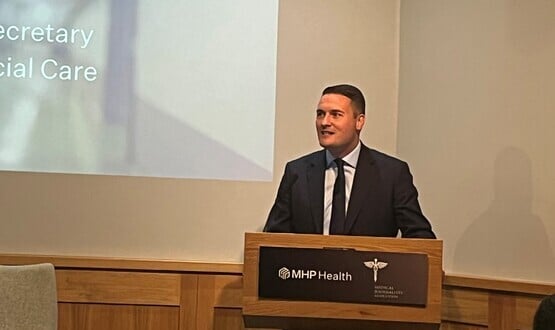Technology can help transform the NHS says Starmer
- 22 May 2023

Labour Leader Keir Starmer has identified technology as one of three key shifts that his party will use to transform the health service under a Labour government.
In a speech on Monday in Essex, Starmer noted that the nature of disease has changed substantially from one requiring urgent and acute hospital care to one requiring above all management of chronic, long-term conditions.
Starmer identified three main shifts that need to happen in order for the NHS to continue to be sustainable. The first involves moving care out of hospitals and closer to the community, he said, adding that the NHS “must become a Neighbourhood Health Service.”
The second shift involves pivoting away from a mind-set that health is all about sickness to put prevention first, including reducing three of the country’s main killers: cardiovascular disease, cancer and suicide.
This change, Starmer insisted, would help improve healthy life expectancy and halve the inequality gap between different regions of England. Shift two – we must move from a mind-set that views health as all about sickness, putting prevention first.
Shift three involves using technology to accelerate the first two shifts and bring about a different kind of healthcare, he said, one that brings about shorter waiting time, better treatment, early diagnosis and meaningful prevention.
“With artificial intelligence, with personalised medicine, with new vaccines, we stand on the cusp of a revolution that could transform healthcare for the better,” he said. “My message today is this – science and technology are the game-changers. This is what will make the NHS fit for the future.”
Putting more power in the hands of patients
Despite being downloaded by 33 million people during the pandemic, Starmer said the extraordinary opportunity of the NHS app has so far been largely wasted.
Labour, whose 2015 manifesto failed to focus on making more use of IT, would take the app – and innovations like it – and expand them, he said, putting them in the hands of patients, and use them to transform their relationship with the NHS.
This would include moving to fully digital patient records – appropriate self-referral routes, reminders to get check-ups and screening, the latest guidance on treatment and “patients in control of their own data”, he said.
“Choosing how it’s used and how it’s shared, this will get rid of a divide between those confident to speak up for themselves and those who can’t,” Starmer added, noting that technology not only provides more choice and power for patients but also has the potential to save lives.
He cited the example of lung cancer where 274,000 patients have been waiting for the results of scans for 11 days or more.
Artificial Intelligence (AI) not only has the capacity to reduce workload and raise productivity but can reduce missed lung cancer diagnoses by 60% when used properly by a radiologist, he said.
Starmer concluded: “To make this happen, innovators need one route into the NHS not many, incentives to innovate throughout the system, fewer barriers to adoption, fewer hurdles to clear, less bureaucracy, more clinical trials, and a government that uses its full power to back our world leading life sciences.




